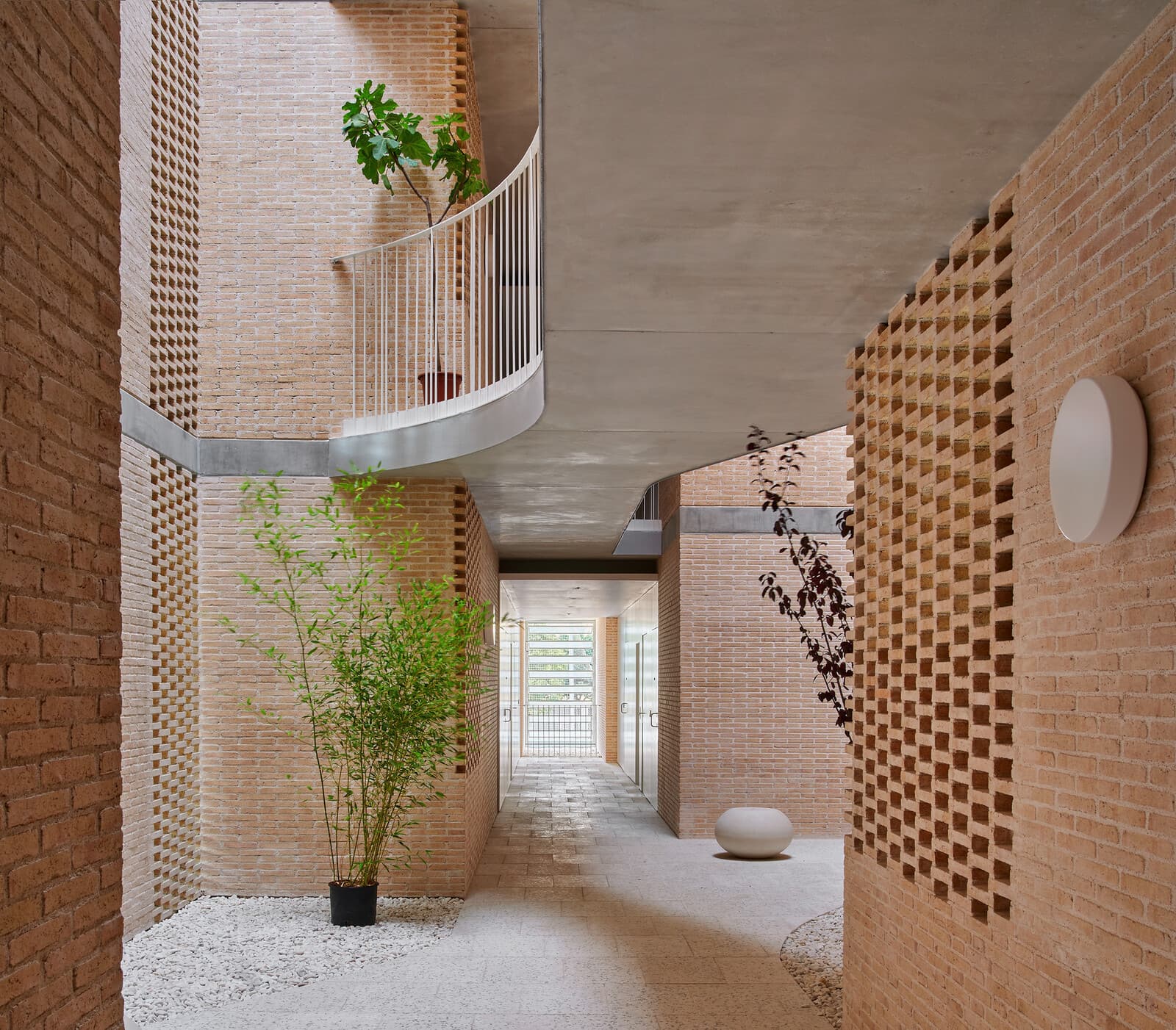AI-Generated Summary
Context of Social Housing in Spain
In recent years, Spain has faced significant challenges in its housing sector, particularly in urban areas like Barcelona, where skyrocketing rents and housing shortages have led to increasing evictions and energy poverty. Social housing, often overlooked, has emerged as a vital solution. The article, authored by Philip Oldfield and published on Dwell, emphasizes the innovative designs of social housing in Spain, highlighting the Modulus Matrix project, which won the prestigious RIBA International Prize.
Award-Winning Designs
The Modulus Matrix, designed by Peris + Toral Arquitectes, is a six-story development featuring 85 socially rented homes in Cornellà de Llobregat. It serves as a model for sustainable, quality housing, showcasing how social housing can defy traditional prejudices associated with such projects. The building incorporates sunlit balconies, communal spaces, and passive design principles, ultimately enhancing residents' living experiences while minimizing energy costs.
Government Initiatives
Over the past decade, local governments in Spain have been actively constructing social housing that prioritizes quality and sustainability. Barcelona’s Right to Housing Plan, initiated in 2016, aims to double the social housing provision amidst a severe housing crisis exacerbated by tourism-driven short-term rentals. With a commitment of €1.7 billion from the city council and additional public and private funding, the plan seeks to address the city’s housing issues effectively.
Innovative Architectural Approaches
Barcelona's new social housing projects reject conventional designs, opting instead for layouts that encourage social interaction and maximize natural light and ventilation. For instance, the 67 subsidized dwellings in La Trinitat Nova feature private terraces connected to open hallways, allowing for improved airflow and sunlight access. This approach not only enhances the quality of life for residents but also showcases sustainable architectural practices.
Use of Sustainable Materials
Sustainability is a cornerstone of many recent social housing projects in Barcelona. The award-winning Modulus Matrix utilized 8,300 cubic meters of locally sourced timber, and other projects have embraced prefabricated materials to speed construction and reduce carbon emissions. The careful selection of natural materials like brick and stone further underscores a commitment to environmental responsibility.
Cooperative Housing Models
In addition to traditional social housing, Barcelona has also promoted cooperative housing models that encourage communal living. These initiatives allow residents to participate in the design process, ensuring that their needs are met while also offering below-market rental prices. Projects like La Borda exemplify this cooperative approach, providing shared amenities and fostering a sense of community.
Ongoing Challenges and Future Plans
Despite these advancements, Spain still grapples with a significant social housing deficit. Barcelona's current stock of 12,300 social homes falls short of meeting the demand, with only about 2% of housing in Catalonia being socially rented. The city's next Housing Plan, set to run from 2025 to 2032, aims to rethink policies and emphasize housing as a fundamental right for all citizens, amidst ongoing protests against rising rents.
Conclusion
Spain's evolving approach to social housing, marked by innovative designs and sustainable practices, provides valuable insights for other European cities facing similar challenges. The emphasis on quality, community involvement, and sustainability positions Spain as a potential leader in addressing the pressing need for affordable housing solutions across Europe.
